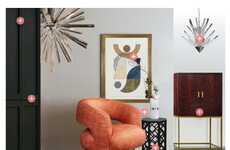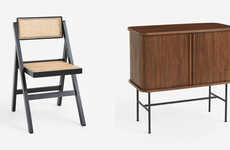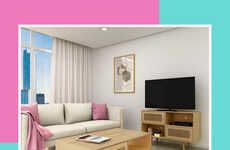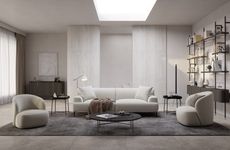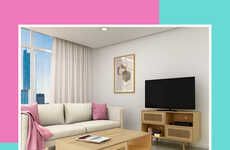
Retailers are Transforming the Furniture Buying Experience
Katherine Pendrill — June 21, 2016 — Art & Design
In the age of Facebook, Pinterest and Instagram, home design is more important to consumers than ever before. However, finding ultra-modern pieces and high-end accessories on a limited budget can be more than challenging. As a result, there has long been a demand for retailers offering the same stylish pieces found in modern design studios alongside the low-budget prices touted by DIY furniture stores. It is this gap in the market that has remained unfilled until very recently.
Since opening its first store in Wynwood Miami, Modani has set a new standard for the way consumers shop for home furnishing. What sets Modani apart from other retailers is that it caters to the modern consumer, who appreciates high-end design, but isn’t willing to break the bank in order to create the perfect space. Celebrity interior designer and host of ‘Design Recipes,’ Cathy Hobbs recently demonstrated why the company has developed such a loyal following by using Modani pieces to furnish a beautiful 3,000-square-foot Tribeca loft. With help from the Modani team, Hobbs was able to use modern design to complement each room and transform the home into the kind of sophisticated, yet functional living space that is in high demand.
Of course, consumers are looking for more than bargain prices and chic designs when it comes to purchasing furniture. With so many on-demand services at their fingertips, consumers have come to expect much more from the furniture shopping experience. Modani has tapped into this idea of turning the laborious task of shopping into a personalized design experience by creating intimate showrooms that help consumers visualize different spaces and offering free in-store design consultations for those looking for advice. Catering to an increasingly tech-savvy customer base, their stores are also equipped with virtual rendering stations that turn imaginative design ideas into reality.
While most furniture retailers struggle to stay relevant in a rapidly changing industry, others, like Modani, have adapted to the needs of the modern consumer.
Since opening its first store in Wynwood Miami, Modani has set a new standard for the way consumers shop for home furnishing. What sets Modani apart from other retailers is that it caters to the modern consumer, who appreciates high-end design, but isn’t willing to break the bank in order to create the perfect space. Celebrity interior designer and host of ‘Design Recipes,’ Cathy Hobbs recently demonstrated why the company has developed such a loyal following by using Modani pieces to furnish a beautiful 3,000-square-foot Tribeca loft. With help from the Modani team, Hobbs was able to use modern design to complement each room and transform the home into the kind of sophisticated, yet functional living space that is in high demand.
Of course, consumers are looking for more than bargain prices and chic designs when it comes to purchasing furniture. With so many on-demand services at their fingertips, consumers have come to expect much more from the furniture shopping experience. Modani has tapped into this idea of turning the laborious task of shopping into a personalized design experience by creating intimate showrooms that help consumers visualize different spaces and offering free in-store design consultations for those looking for advice. Catering to an increasingly tech-savvy customer base, their stores are also equipped with virtual rendering stations that turn imaginative design ideas into reality.
While most furniture retailers struggle to stay relevant in a rapidly changing industry, others, like Modani, have adapted to the needs of the modern consumer.
Trend Themes
1. Online Design Consultations - There is an opportunity to disrupt the furniture industry by offering virtual design consultations for customers who prefer to shop online.
2. Affordable Modern Designs - By providing high-end modern furniture at budget-friendly prices, retailers can tap into the demand for stylish yet affordable home decor.
3. Interactive Showroom Experiences - Creating immersive and interactive showrooms that allow customers to visualize different spaces can revolutionize the furniture buying experience.
Industry Implications
1. Furniture Retail - The furniture retail industry has an opportunity to adapt to the needs of the modern consumer by incorporating virtual design consultations and interactive showrooms.
2. Interior Design - Interior design professionals can embrace the trend of online design consultations to provide their services to a wider audience and offer virtual design solutions.
3. E-commerce - E-commerce platforms can cater to the demand for affordable modern furniture by partnering with retailers or launching their own budget-friendly home decor brands.
6.9
Score
Popularity
Activity
Freshness


